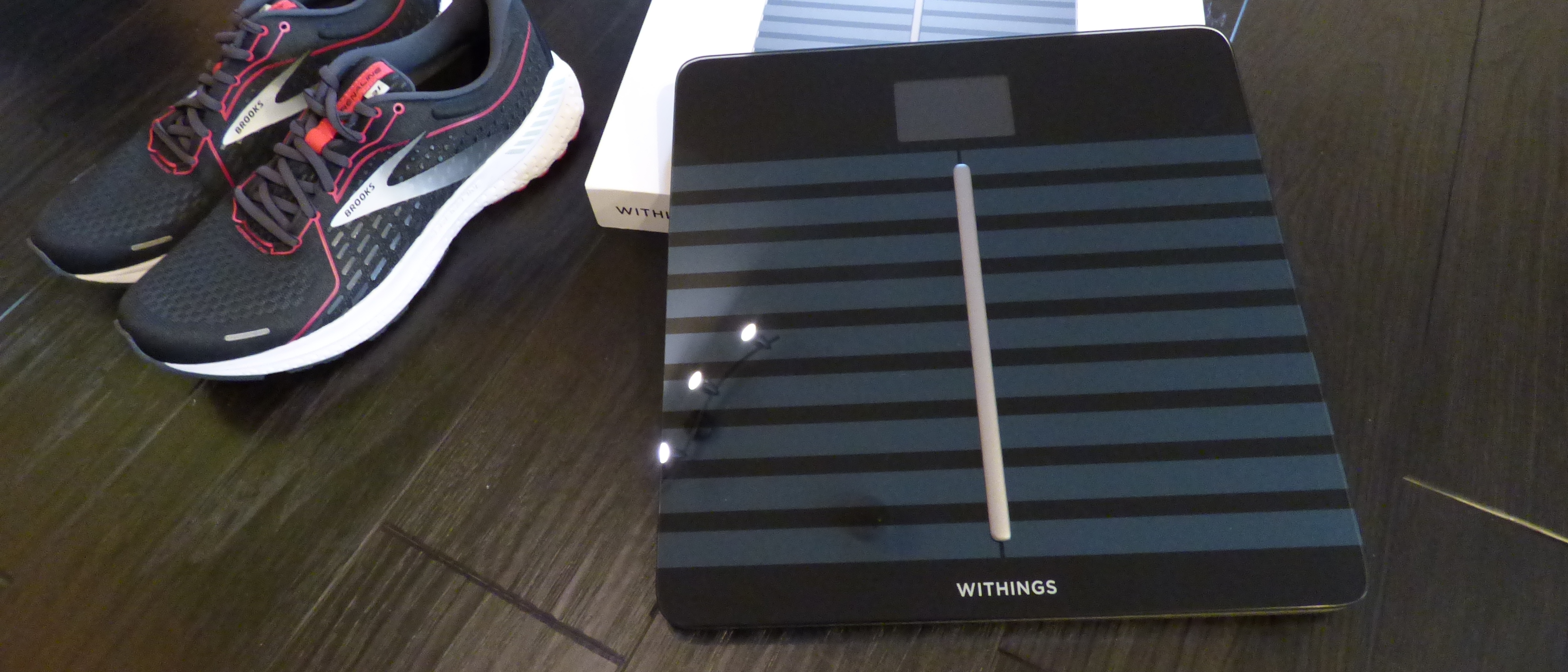TechRadar Verdict
The Withings Body Cardio is a premium smart scale that not only tracks your weight and body composition, but also gives you a detailed insight into your cardiovascular health, while its companion app suggests lifestyle changes to improve your results. It's expensive, but an excellent tool provided the price is within your budget.
Pros
- +
Detailed body composition data
- +
Cardio health metrics
- +
Easy to set up and use
Cons
- -
Heavy to carry
- -
Expensive
Why you can trust TechRadar
There’s more to health than just weight, and the Withings Body Cardio smart scale is designed to help you track improvements in your cardiovascular fitness over time, as well as your body composition.
Like most smart scales, the Body Cardio uses bioelectrical impedance to measure the mass of different tissue types, including bone, muscle and fat. That's not all, though; it also measures your heart rate and pulse wave velocity, which can be good indicators of your overall wellbeing.
A lower heart rate is typically an indicator of better fitness, so if you see that your numbers are trending down, it's a good sign that you're on the right track. Pulse wave velocity, meanwhile, indicates how flexible your arteries are (we'll go into the details below). Stiffer arteries mean your heart has to work harder to pump blood around your body.
All this data is synced wirelessly to the Withings Health Mate app on your phone via Bluetooth or Wi-Fi, where it's visible alongside workout data and step counts gathered by third-party apps like Google Fit, Samsung Health, and Apple Health.
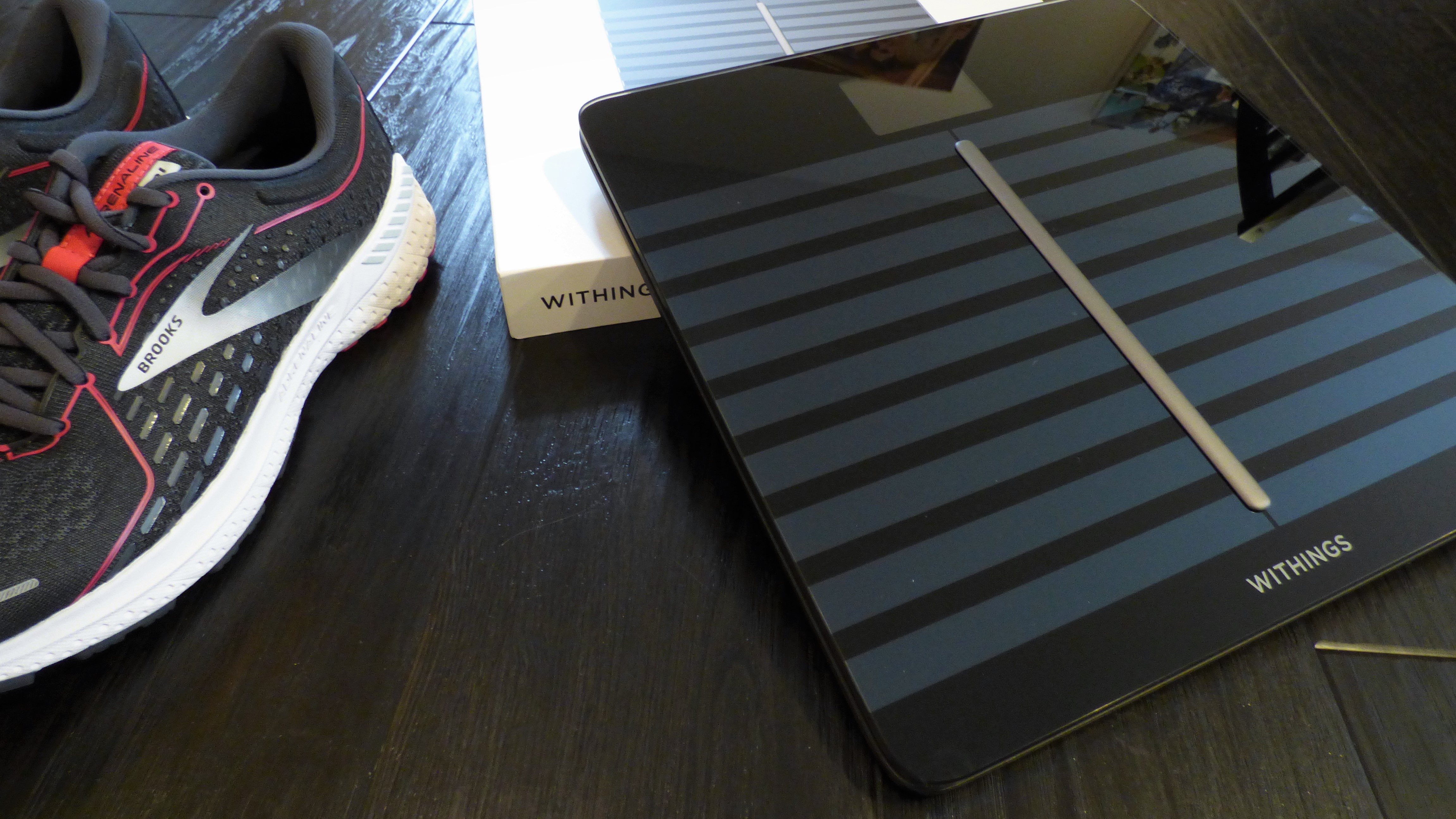
In addition to aggregating all this data, the app also gives you an in-depth explanation of what it all means, and provides helpful suggestions for lifestyle changes you can make to improve your numbers.
It's a well designed package that will serve you well if you're interested in not just losing weight, but improving your overall fitness. The Body Cardio scale is quite expensive though, costing twice as much as smart scales that only monitor body composition.
Price and release date
The Withings Body Cardio was released in May 2018, and costs $149.95 / £108.29 / AU$249.
Design
Like most smart scales, the Withings Body Cardio has a glass platform that provides a robust non-slip surface to stand on.
There are no feet underneath; instead, the scale has a type of two-layer design with a flat aluminum base that Withings says makes it "the thinnest, most stable scale on the market", and means it's suitable for use on all floors, including carpet. It's a novel design, but one that makes it noticeably heavier than other smart scales at 2.6kg.
If you need a scale to travel with you might be better off with something like the FitTrack Dara, which is more compact and weighs just 1.4kg.
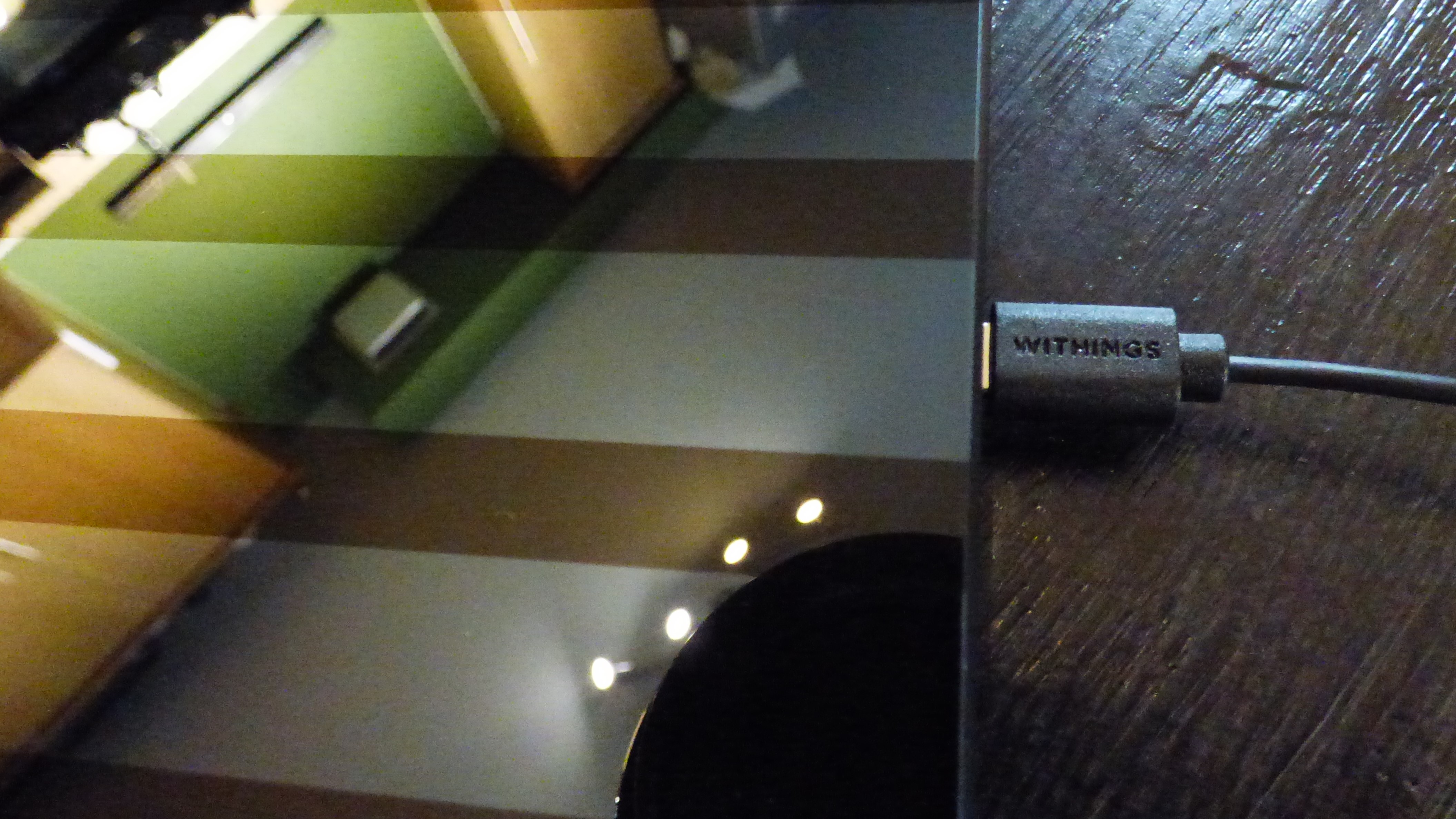
Whereas most smart scales use three or four AA batteries, the Body Cardio scale is charged via a micro USB port on the side. Charging progress is displayed on the screen once it’s plugged in. It's an unusual choice, but one that we appreciate due to the reduction in waste from old batteries.
We also like the positioning of the power button on the side of the scale rather than the base; particularly since the scale is quite weighty. Once the scale is charged and you’ve installed the smartphone app, hold this button for three seconds and you’re ready to get started.
The display is quite large, measuring 2.4 x 1.6in, and makes good use of graphics to represent complex information.
User experience
Pairing your with Withings Body Cardio scale with your phone is a simple process using the Health Mate app. You'll first be prompted to connect the two via Bluetooth, after which you'll be given the option of connecting the scale to your Wi-Fi network as well. This isn't mandatory, but is recommended so your data can sync when your phone isn’t within range.
Once that's done, you can choose which stats to see on the scale each time you weigh in, including weight, body composition (muscle mass, water, fat etc), weather, and heart rate and pulse wave velocity.
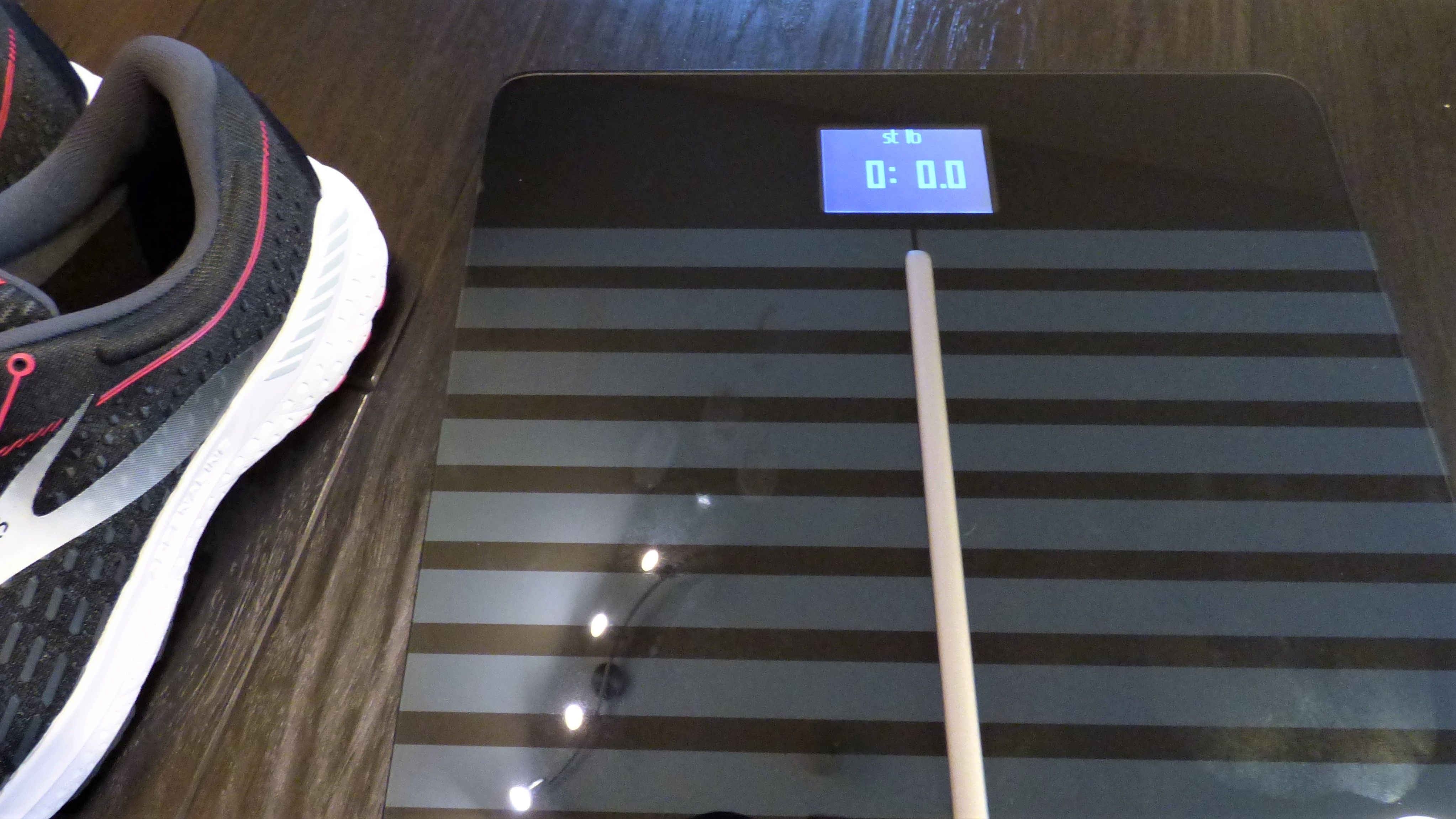
Bear in mind that heart rate typically increases immediately after standing, so it's a good idea to wait a moment and step onto the scale after it's settled.
It takes five weigh-ins to gather enough data to calculate your pulse wave velocity (you'll see how many weigh-ins are still to go each time you step on). Your optimal pulse wave velocity depends partly on your age, and the app will show you whether or not your results are optimal for your age group.
If your pulse wave velocity is particularly fast, it's a sign that your arteries are deteriorating faster than they should, and you may be at risk of hypertension. A slower velocity indicates that your heart and blood vessels are in good health.
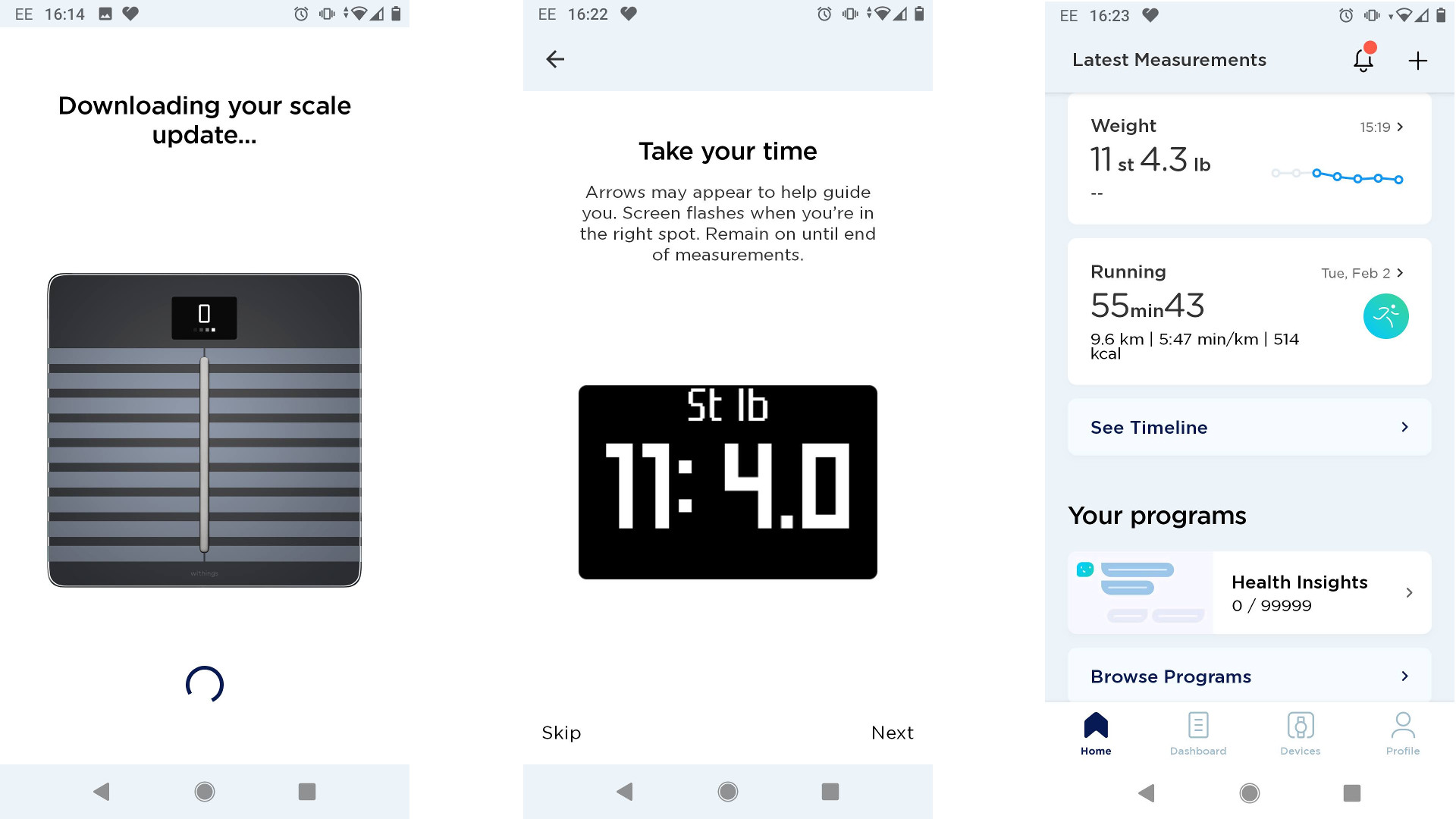
When you step on, the scale will immediately recognize you based on your biometric data, and display your name to confirm it. It will then cycle through the data you've chosen to see each time you weigh in.
If you're not standing in quite the right position, small arrows will appear to guide you into the optimal place on the platform.
Bear in mind that the extra cardiovascular measurements mean you'll need to stay on the platform for a little longer than you would on a typical smart scale. The Withings Body Cardio only failed to measure our heart rate once, and that was because we moved during the weighing process. Stand still and you shouldn't run into any issues.
The scale can track data for up to eight users, making it a good choice for larger households (the Salter Mibody Digital Analyser, by contrast, can only track up to four people). If it's unable to sync wirelessly straight away (via either Bluetooth or Wi-Fi) it can store up to 16 readings.
Composition and weight measurements were consistent across multiple weigh-ins, and matched those from other Withings scales, showing the same degree of change over time.
Companion app
The Withings Health Mate app is clear and well designed (much more so than the equivalent app from rival Salter).
Not only does the app sync information on weight and cardiac health from your scale, it can also import data from third-party apps like Samsung Health, Apple Health and Google Fit, allowing you to see your activity details and health metrics all in one convenient place. You'll be prompted to connect any of these compatible apps when installing Health Mate, and the process is quick and seamless.
Body composition measurements are all shown in clear line graphs so you can track changes over time, and each one is accompanied by a 'Learn more' button that you can tap to discover exactly what each reading means. Some smart scale apps only give you raw numbers, and this extra detail is very useful for putting them into context.
The app will suggest lifestyle changes that can help improve your fitness stats, and you can choose to join programs that will guide you through the process of developing better habits.
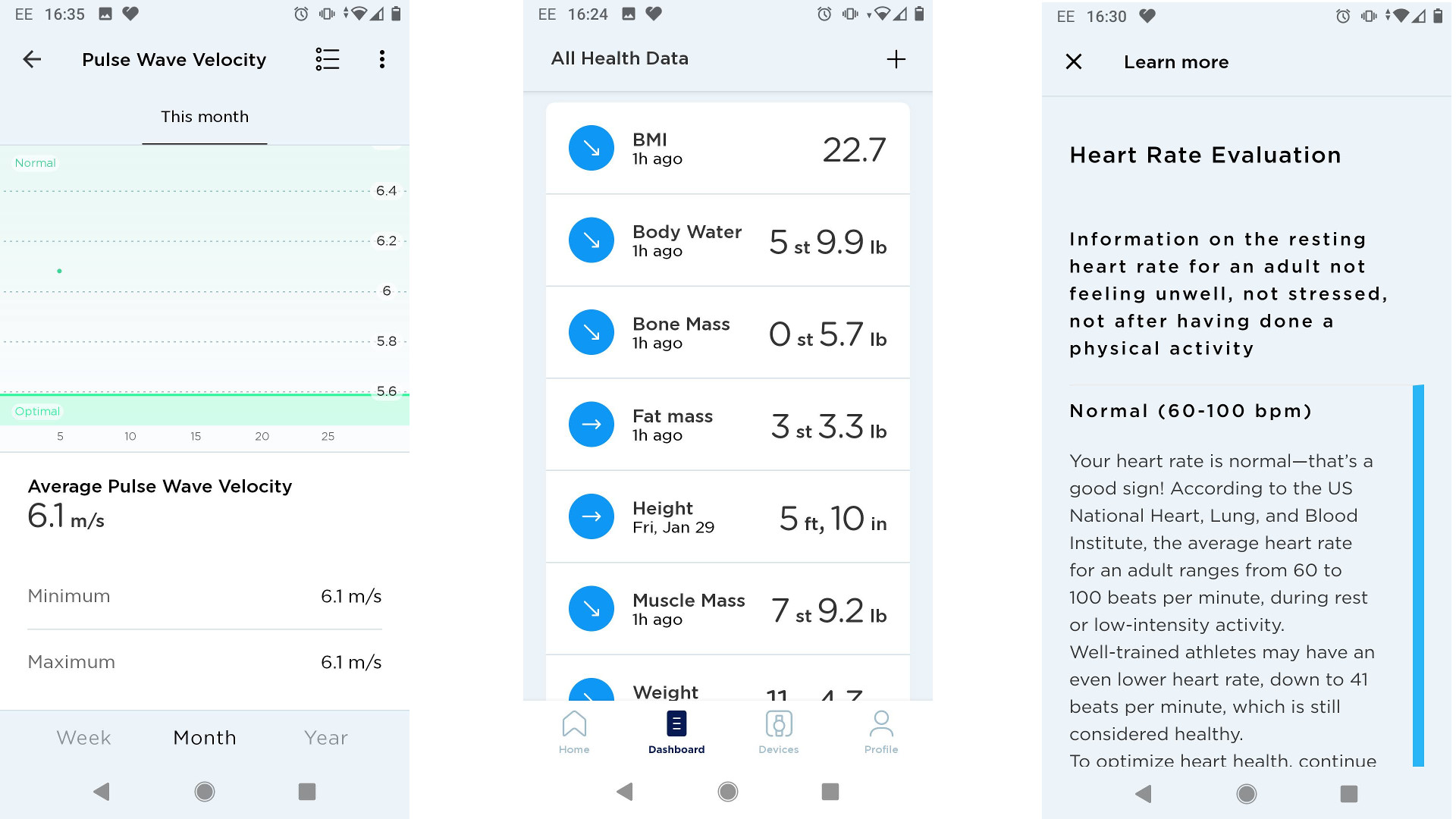
If you're in a hurry, you can see how each of your body composition metrics is trending at a glance thanks to arrow icons in the app's dashboard. When you have time to delve into more detail, you can choose to view numbers as weights or percentages, set goals, and learn the best ways to achieve them.
Buy it if
You want to improve your overall fitness
A smart scale is a good tool for tracking weight loss, but the Withings Body Cardio also helps you monitor changes to your fitness levels, which can give you a lot of extra insight.
You want to lose weight sustainably
The Withings Health Mate app gives you lots of advice on lifestyle changes, with suggestions that change depending on readings from the scale, helping you make healthier choices and manage your weight in a sensible way.
Don't buy it if
You're on a tight budget
While they won't give you such detailed information, there are some excellent smart scales available for less than half the price of the Withings Body Cardio.
You want a scale to travel with
The Withings Body Cardio can be used on lots of different types of floor, but it's unusually heavy for a smart scale, so you aren't likely to want to tuck it into your luggage.
- Check out our complete guide to the best fitness trackers

Cat is TechRadar's Homes Editor specializing in kitchen appliances and smart home technology. She's been a tech journalist for 15 years, having worked on print magazines including PC Plus and PC Format, and is a Speciality Coffee Association (SCA) certified barista. Whether you want to invest in some smart lights or pick up a new espresso machine, she's the right person to help.
